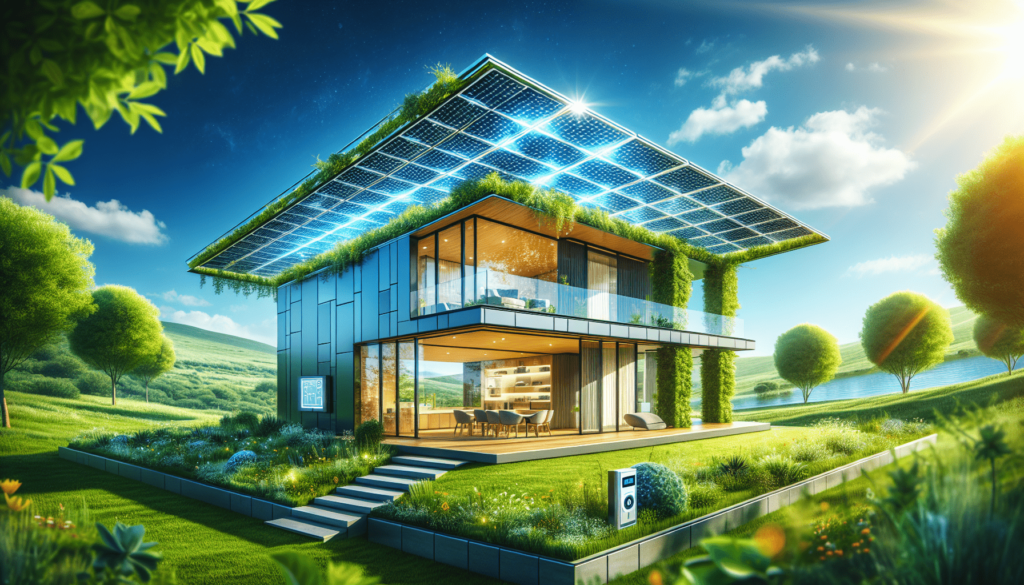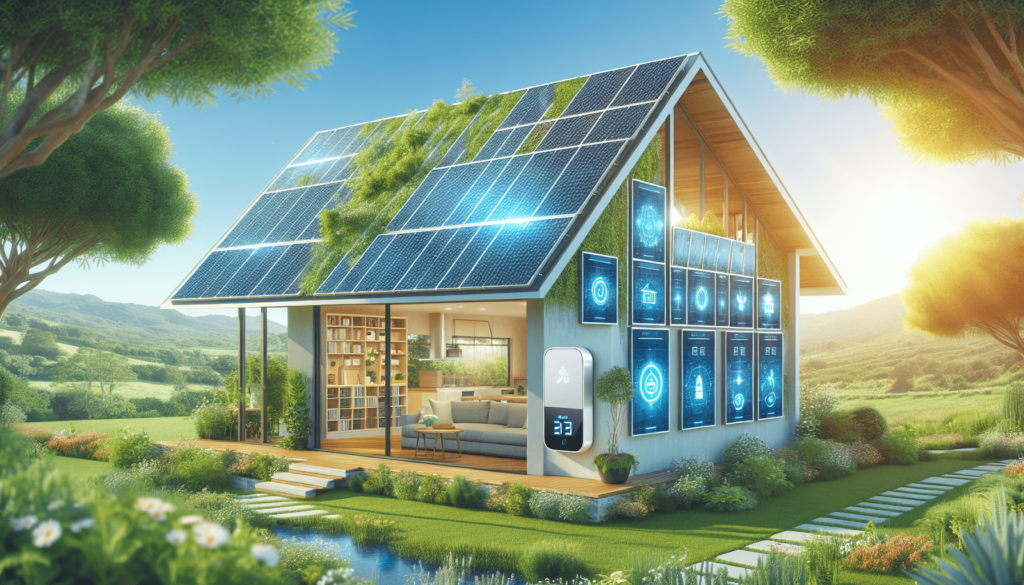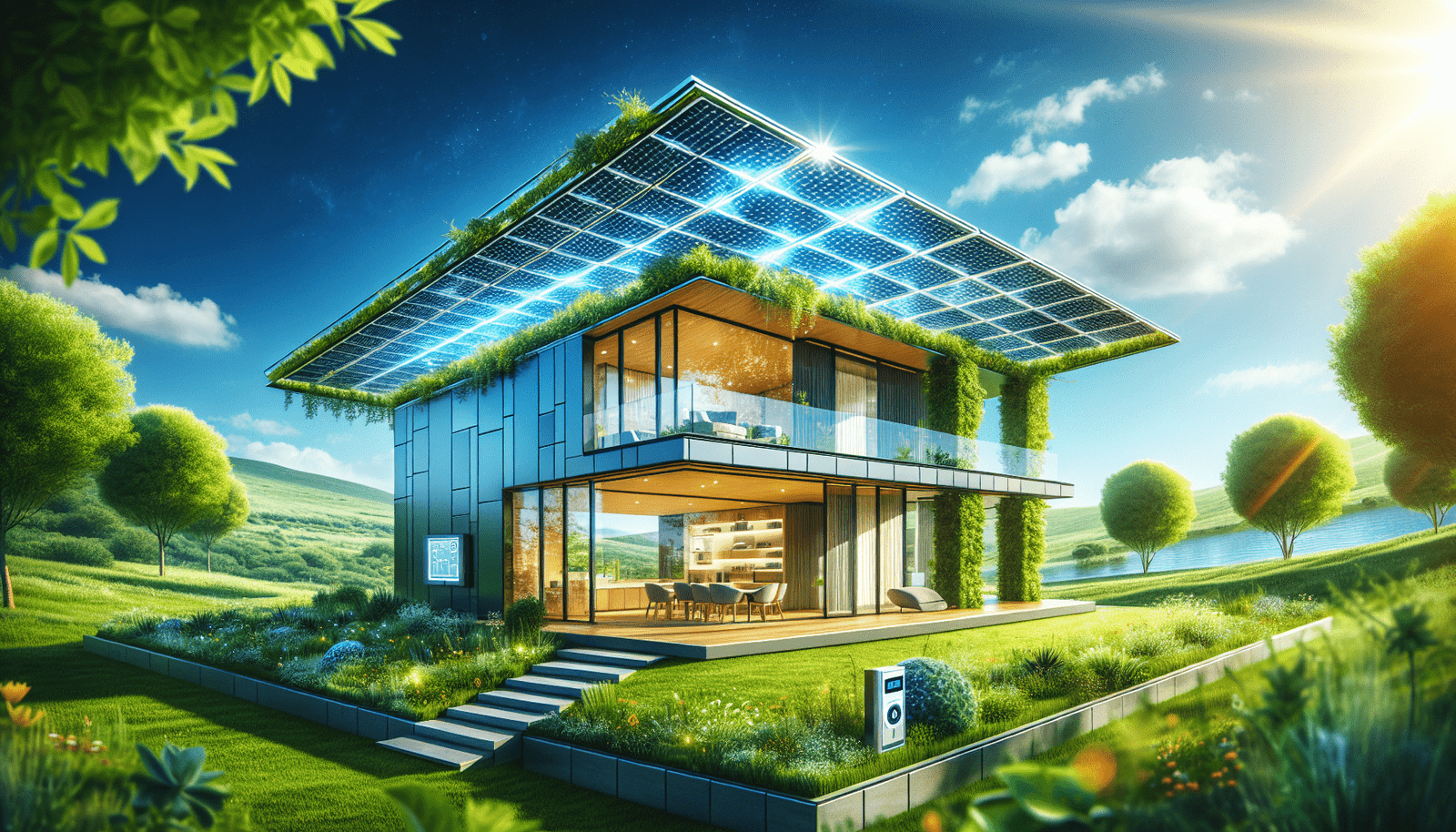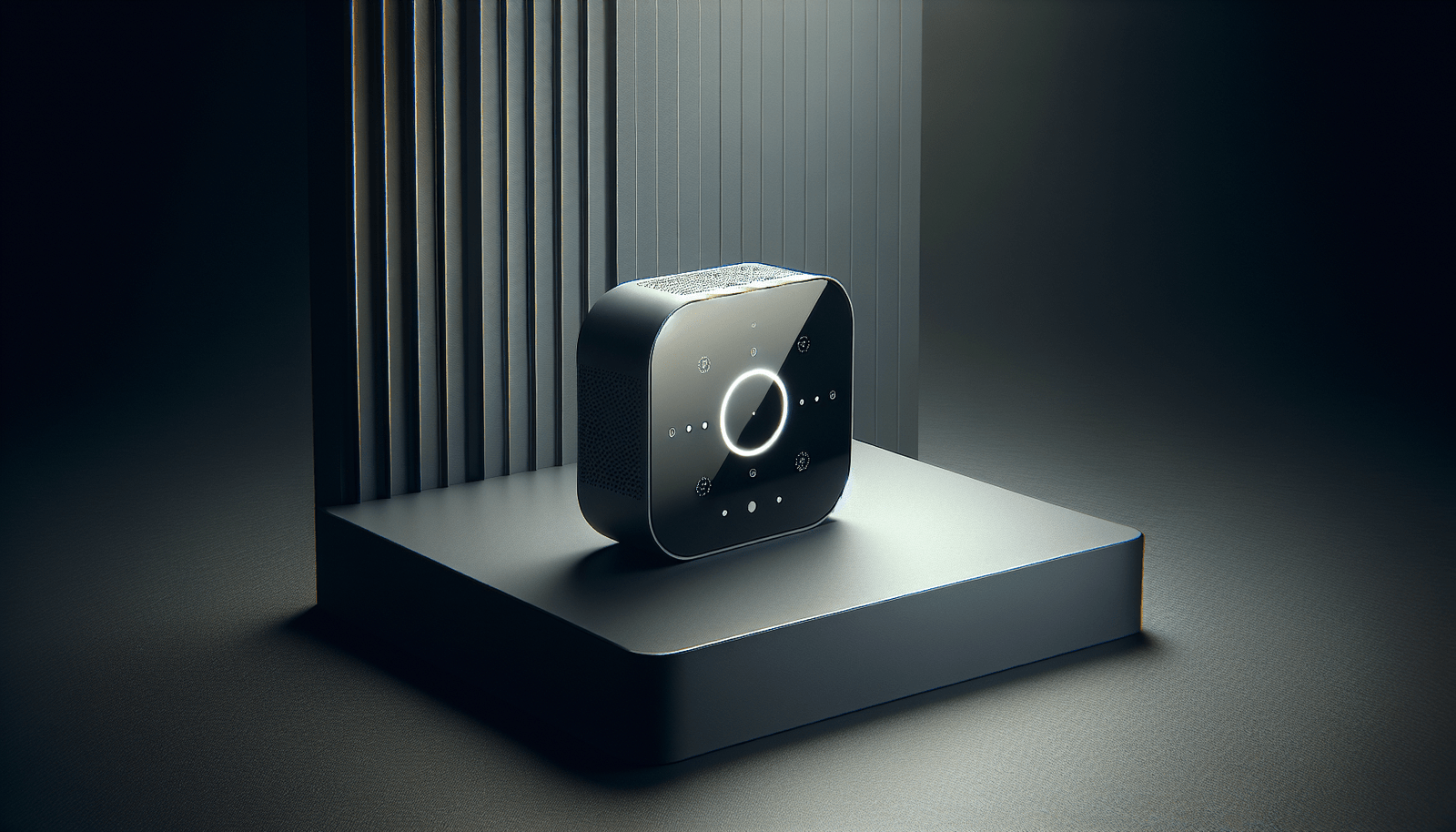Have you ever thought about the extraordinary benefits of combining smart home technology with solar panels? With the rising interest in renewable energy and the flexibilities offered by smart home devices, there’s never been a more opportune time to consider such an integration. You might be curious about how this blend could transform your living experience. Let’s take a friendly journey through this exciting topic and explore how you can make your home smarter, more sustainable, and efficient.

Understanding Smart Home Technology
Smart home technology refers to devices and systems that automate and remotely control various aspects of your home environment. It includes everything from smart thermostats and lighting to advanced security systems, all designed to create a more connected, efficient, and convenient living experience. These devices can lead to an enhanced quality of life by simplifying daily tasks, ensuring security, and boosting energy efficiency.
What Are Smart Home Devices?
Smart home devices are electronic components designed to integrate with each other through the internet. By connecting to a central hub or directly to your home network, these devices allow you to control them through smartphones, tablets, or voice assistants like Alexa and Google Assistant. From adjusting room temperatures to monitoring security cameras, smart home devices help manage your living spaces with convenience and precision.
Why Consider Smart Home Living?
For homeowners, renters, and tech enthusiasts alike, smart home living offers unmatched convenience, security, and energy savings. By automating mundane tasks, you gain time to focus on what matters most. For first-time buyers and real estate investors, smart home upgrades enhance property value, making it a forward-thinking investment.
Solar Panels: A Step Towards Sustainability
Solar panels capture sunlight and convert it into electricity, reducing reliance on fossil fuels and lowering energy bills. They’re a cornerstone of sustainable living, offering an eco-friendly alternative that reduces carbon footprint and promotes clean energy usage.
How Do Solar Panels Work?
Solar panels are made up of photovoltaic (PV) cells that absorb sunlight and generate direct current (DC) electricity. An inverter then converts this DC into alternating current (AC), which powers your home. Excess energy can often be stored in batteries for later use, ensuring a consistent energy supply even during cloudy days or at night.
Benefits of Solar Panels
The environmental and financial advantages of solar panels are significant. They can drastically cut electricity costs, and some regions even offer incentives like tax breaks and rebates for solar installations. Moreover, solar energy contributes to a greater sense of energy independence and security.
Integrating Smart Home Technology with Solar Panels
Combining smart home technology with solar panels is about creating a cohesive system where each component enhances the functionality and efficiency of the other. It’s like a symbiotic relationship that balances energy usage, optimizes home living, and maximizes savings.
Enhancing Energy Efficiency
Smart home devices can optimize your solar energy usage. Smart thermostats, for instance, adjust heating and cooling based on weather patterns and your daily habits, ensuring efficient use of energy. Lighting systems can automatically dim during daytime hours or turn off when rooms are unoccupied, further conserving energy supplied by solar panels.
Real-Time Monitoring and Control
By integrating smart technology, you gain insights into your energy production and consumption patterns. Smart meters and apps provide real-time data on solar energy generation and household usage, helping you make informed decisions about energy consumption and identify potential areas for improvement.
Seamless Connectivity and Convenience
Smart home hubs can integrate solar panel systems with other smart devices, facilitating synchronized operations. For example, when solar panels produce surplus energy, it can be directed to charge electric vehicles or power high-energy appliances, thereby optimizing resource usage without manual intervention.
The Financial Implications: Costs and Savings
Investing in smart home technology with solar panels requires an upfront investment, but the long-term savings can be substantial. Here’s how the financial aspects typically pan out:
Upfront Costs
Initial costs include purchasing and installing solar panels and smart devices. While these costs can be significant, various financing options and government incentives can alleviate the financial burden. Exploring options like solar leasing or power purchase agreements (PPAs) can also minimize initial expenditures.
Long-Term Savings and ROI
Solar panels reduce energy bills significantly, and smart home devices optimize energy usage for further savings. Over time, the cost savings from reduced energy expenses and increased property value can provide a robust return on investment (ROI). Homeowners often recover initial costs within a few years, translating into financial gains in the long run.
| Component | Initial Cost Range | Potential Savings (Annual) |
|---|---|---|
| Solar Panels | $15,000 – $25,000 | $700 – $2,000 |
| Smart Thermostat | $150 – $300 | $130 – $180 |
| Smart Lighting System | $150 – $400 | Up to $75 |
| Home Automation System | $500 – $2,000 | Variable |

Security and Privacy Considerations
As enriching as smart home technology can be, it’s essential to remain vigilant about security and privacy. Protecting your connected systems is crucial to safeguard against unauthorized access and potential data breaches.
Safeguard Measures
Ensure all devices, especially those controlling critical operations like your solar panel systems, are secured with robust passwords. Regularly update firmware and software to protect against vulnerabilities. Consider setting up a dedicated network for smart devices to enhance security.
Data Privacy
Always be mindful of data shared through smart devices. Opt for reputable brands with clear privacy policies and avoid sharing excessive personal information. Some systems offer options to limit data collection, which can be an added security layer.
Energy Efficiency and Environmental Impact
Integrating smart home technology with solar panels not only reduces household emissions but also aligns with broader goals for environmental sustainability.
Maximize Energy Conservation
Devices like smart power strips, efficient appliances, and smart water heaters contribute significantly to reducing energy wastage. By synchronizing with solar outputs, these devices ensure that renewable energy is used judiciously, reducing overall dependency on grid power.
Promote Sustainability
Every kilowatt-hour of solar energy reduces greenhouse gas emissions, further encouraging sustainable living. By leveraging smart technology, you enhance the impacto of solar panels, promoting a cleaner, greener planet.
Compatibility and System Connectivity
Compatibility is a critical consideration when integrating smart technology and solar panels. Ensuring that all devices work harmoniously together can streamline operations and deliver optimal benefits.
Choosing Compatible Devices
Select smart devices that are compatible with your solar panel system and existing home infrastructure. Check for compatibility with popular ecosystems like Apple HomeKit, Google Home, or Amazon Alexa. It’s advisable to consult with professionals to ensure smooth integration.
Future-Proofing Your System
The smart home technology landscape is rapidly evolving, so opting for devices with scalable features is wise. Choose systems with capabilities to incorporate new technologies as they emerge, ensuring your investment remains relevant.
Exploring Emerging Trends and Innovations
The future of smart home technology and solar integration is poised for exciting developments. Keeping abreast of these trends ensures you’re prepared to harness new opportunities.
Innovations on the Horizon
Expect advancements in artificial intelligence, which will enable predictive energy management and enhance automation precision. Developments in battery storage technology could revolutionize how we store and use solar energy, providing greater autonomy and efficiency.
Embracing Future Technologies
Stay informed about new products, updates, and industry shifts. Innovation will likely lead to more cost-effective solutions and greater interoperability between smart and solar technologies, making them more accessible to a broader audience.
Making the Decision: Is This Right for You?
Integrating smart home technology with solar panels has significant benefits, but it’s vital to assess if it aligns with your lifestyle and goals.
Evaluate Your Needs and Goals
Consider your motivations—are you driven by environmental concerns, the lure of tech-savvy living, or financial savings? Determining these will help tailor a plan that meets your specific needs.
Budget Considerations
Assess your budget and potential financing options. Consider long-term savings versus initial costs, and evaluate if the investment suits your financial situation.
In conclusion, integrating smart home technology with solar panels can transform your living space into a future-focused, efficient, and comfortable environment. By understanding the intricacies of each component and their synergistic benefits, you can make an informed decision that aligns with your aspirations for a smarter, greener, and more connected lifestyle. Crafting an enhanced living environment is within your reach, and it promises both personal and planetary rewards.




